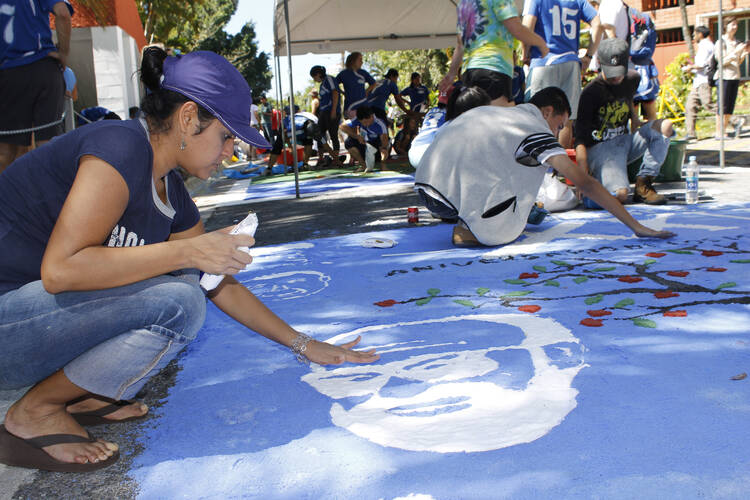Authorities in Guatemala and El Salvador took steps this week toward contemporary accountability for old, and some may have hoped perhaps forgotten crimes. In Guatemala the arrests of 18 former military officials on charges of human rights violations were detailed on Jan. 6. The same day officials in El Salvador announced that the government had agreed to cooperate with a Spanish court’s request and would seek the arrest of 17 ex-soldiers linked to the slayings of six Jesuit priests, their housekeeper and her daughter at the University of Central America in 1989.
The Guatemalan ex-military face charges related to the disappearance of more than 550 people between 1981 and 1988 during that nation’s civil war. Guatemalan Attorney General Thelma Aldana told reporters that among the detained was former General Manuel Benedicto Lucas García, the brother of late President Fernando Romeo Lucas García and the man credited with establishing the Central American country’s paramilitary groups.
On Jan. 4 Spanish National Court Judge Eloy Velasco had re-issued a request for international arrest warrants for more than a dozen former Salvadoran military officials, including members of the military High Command, linked to the Jesuit murders. Five of the murdered Jesuits, gunned down because of their support for human rights and criticism of the government during El Salvador’s civil war, were Spanish nationals.
Salvadoran presidential spokesman Eugenio Chicas said once legal requirements of the Spanish request were met, Salvadoran authorities could make the arrests. "The only path for our security forces to take is to proceed with the arrests, that is, there's nothing to do but follow the law," Chicas said in a statement to the media. But he also noted that arrests may not mean extradition to Spain. That would depend on another ruling in the case from the nation’s Supreme Court, which had decided in 2011 against extradition of the ex-soldiers to Spain.
Omar Serrano, a vice-rector at UCA, told Reuters: "This is a new opportunity for the justice system in this country to put things right.”
The Center for Justice and Accountability, a San Francisco-based human rights organization that has been working on seeking justice for past human rights abuses, has been working with the Spanish Association for Human Rights on the Jesuit murders. Almudena Bernabéu, CJA’s International Attorney and lead counsel in the Jesuits Massacre Case before the Spanish National Court, said: “This new request and the potential arrest of the defendants are beams of hope not only for the case in Spain but also for El Salvador. This demonstrates that justice is inevitable for even those who still cling to power and escape accountability through amnesty laws.”








